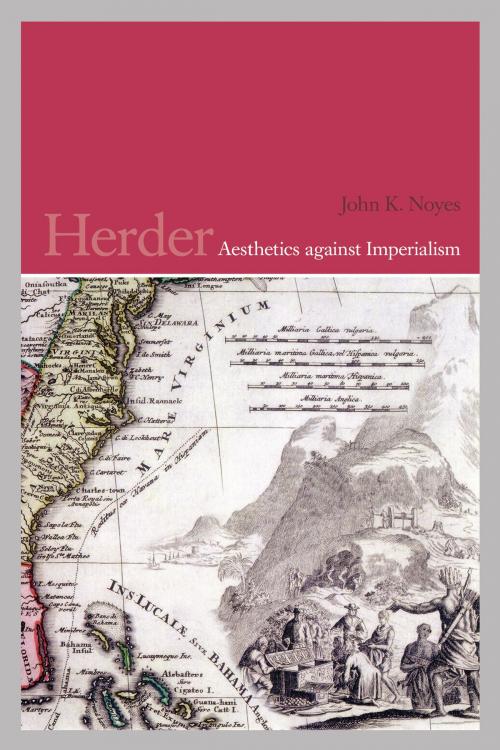Herder
Aesthetics against Imperialism
Fiction & Literature, Literary Theory & Criticism, European, German, Nonfiction, History, Germany| Author: | John K. Noyes | ISBN: | 9781442622982 |
| Publisher: | University of Toronto Press, Scholarly Publishing Division | Publication: | November 26, 2015 |
| Imprint: | Language: | English |
| Author: | John K. Noyes |
| ISBN: | 9781442622982 |
| Publisher: | University of Toronto Press, Scholarly Publishing Division |
| Publication: | November 26, 2015 |
| Imprint: | |
| Language: | English |
Among his generation of intellectuals, the eighteenth-century German philosopher Johann Gottfried Herder is recognized both for his innovative philosophy of language and history and for his passionate criticism of racism, colonialism, and imperialism. A student of Immanuel Kant, Herder challenged the idea that anyone – even the philosophers of the Enlightenment – could have a monopoly on truth.
In Herder: Aesthetics against Imperialism, John K. Noyes plumbs the connections between Herder’s anti-imperialism, often acknowledged but rarely explored in depth, and his epistemological investigations. Noyes argues that Herder’s anti-rationalist epistemology, his rejection of universal conceptions of truth, knowledge, and justice, constitutes the first attempt to establish not just a moral but an epistemological foundation for anti-imperialism. Engaging with the work of postcolonial theorists such Dipesh Chakrabarty and Gayatri Spivak, this book is a valuable reassessment of Enlightenment anti-imperialism that demonstrates Herder’s continuing relevance to postcolonial studies today.
Among his generation of intellectuals, the eighteenth-century German philosopher Johann Gottfried Herder is recognized both for his innovative philosophy of language and history and for his passionate criticism of racism, colonialism, and imperialism. A student of Immanuel Kant, Herder challenged the idea that anyone – even the philosophers of the Enlightenment – could have a monopoly on truth.
In Herder: Aesthetics against Imperialism, John K. Noyes plumbs the connections between Herder’s anti-imperialism, often acknowledged but rarely explored in depth, and his epistemological investigations. Noyes argues that Herder’s anti-rationalist epistemology, his rejection of universal conceptions of truth, knowledge, and justice, constitutes the first attempt to establish not just a moral but an epistemological foundation for anti-imperialism. Engaging with the work of postcolonial theorists such Dipesh Chakrabarty and Gayatri Spivak, this book is a valuable reassessment of Enlightenment anti-imperialism that demonstrates Herder’s continuing relevance to postcolonial studies today.















